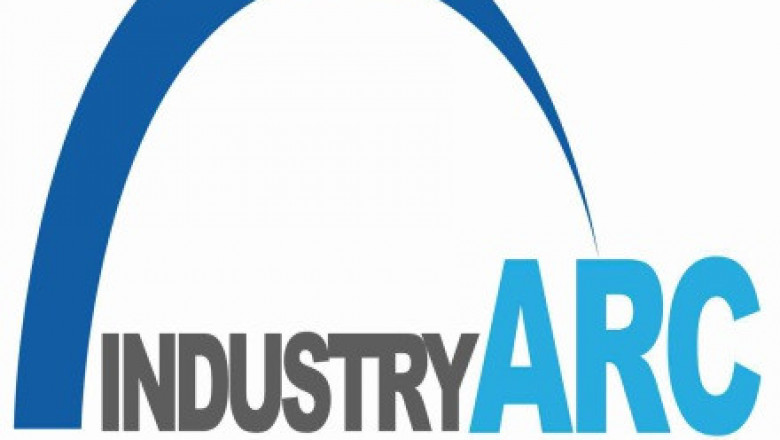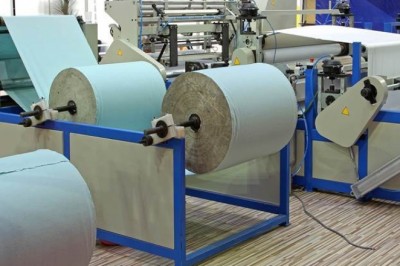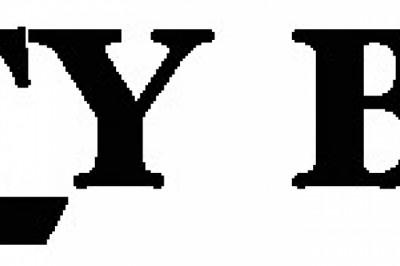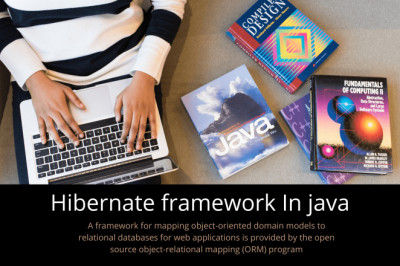304
views
views

The Robotic Process Automation Market is estimated to reach USD22.14 billion by 2030, growing at a CAGR of 35.9% during the forecast period 2022-2027. Robotic process automation (RPA) is an automation software technology that makes it simple to design, deploy and manage software robots that resemble how people interact with digital systems and software.
The Robotic Process Automation Market is estimated to reach USD22.14 billion by 2030, growing at a CAGR of 35.9% during the forecast period 2022-2027. Robotic process automation (RPA) is an automation software technology that makes it simple to design, deploy and manage software robots that resemble how people interact with digital systems and software. The variety of RPA solutions includes decision support, tools and services, automation software, software robot, rule-based operation, knowledge-based operation and enterprise software. The integration of artificial intelligence skills like machine learning models and analytics with RPA led to the development of intelligent automation and helped enterprise systems’ digital transformation. The high adoption of RPA in various sectors is due to the ongoing digital transformation and technological advancement of RPA systems that efficiently handling of complex business processes. In June 2022, CIO stated that with the use of the RPA system by IDG Communications, Inc., the team’s capacity for work can be boosted by 35% to 50%.
Report Coverage
The “Robotic Process Automation Market Report – Forecast (2022-2027)” by IndustryARC, covers an in-depth analysis of the following segments in the Robotic Process Automation Market.
By Form: Attended Automation, Unattended Automation and Hybrid RPA.
By Solutions: Automated Software Solutions (Tools and Services, Software robot, Self-learning solutions, Rule-Based Operation, Knowledge-Based Operation, Cognitive automation, Enterprise software, Programmable RPA bots, Others), Decision Support Solutions and Interaction Solutions.
By Deployment: On-premises and Cloud.
By Organization Size: Small & Medium scale enterprises and Large scale enterprises.
By Application: Administration and reporting, Customer support, Data migration and capture, Data analysis, Compliance and Others.
By End-users: Aerospace and Defense, BFSI, Automobile, Food & Beverage, Retail, Governments, Education, Manufacturing, Transportation and Logistics, Telecommunication & IT, Energy and Utilities, Healthcare and Others.
By Geography: North America (the U.S., Canada, Mexico), Europe(Germany, UK, France, Italy, Spain, Others), APAC (China, Japan, South Korea, India, Australia, Others), South America (Brazil, Argentina, Others), RoW (Middle East, Africa).
Key Takeaways
The large-scale enterprise segment held the largest share with 70% in the RPA market by organization size, in 2021. The high adoption of RPA in large-scale enterprises is driven by the growing demand for automation processes in complex business processes to gain maximum productivity.
The Retail sector segment by end users in the Robotic Process Automation Market is expected to grow fastest at a CAGR of 38.2% during the forecast period 2022-2027. The high adoption of RPA in the retail sector is due to its rapid switch to digital modes for efficient management and tracking of business activities.
Asia-Pacific is expected to grow the fastest at a CAGR of 39.1% in the Robotic Process Automation Market during the forecast period 2022-2027. The widescale adoption of RPA in this region is driven by the increasing adoption of technologically advanced RPA systems for handling complex business processes.
The high adoption of RPAaaS to eliminate the licensing cost for RPA is driving the market growth.
Robotic Process Automation Market Value Share, By Region, 2021 (%)
For More Details On this report - Request For Sample
Robotic Process Automation Market Segment Analysis - by Organization Size
The Robotic Process Automation Market by organization size has been segmented into small & medium scale enterprises and large-scale enterprises. The large-scale enterprise segment held the largest share with 70% in the RPA market by organization size, in 2021. The high adoption of RPA in large-scale enterprises is driven by the growing demand for automation processes in complex business processes to gain maximum productivity. The leading companies are adopting new strategies such as extended licensing terms and supplemental software items to improve the RPA already in use. In April 2021, FPT Software Company stated that it would be giving its current customers a free extension on the licensing of its product.
Robotic Process Automation Market Segment Analysis - by End-users
The Robotic Process Automation Market by end users has been segmented into aerospace and defense, BFSI, automobile, food & beverage, retail, governments, education, manufacturing, transportation and logistics, telecommunication & IT, energy and utilities, healthcare and others. The retail sector segment by end users in the Robotic Process Automation Market is expected to grow fastest at a CAGR of 38.2% during the forecast period 2022-2030. The high adoption of RPA in the retail sector is due to its rapid switch to digital modes for efficient management and tracking of business activities such as accounting and finance, customer service management and customer behavior analysis. In July 2022, Comtec Information System in their report stated that the use of RPA in retail sectors can save more than $2 trillion in the global workforce.
Robotic Process Automation Market Segment Analysis - by Geography
The Robotic Process Automation Market by geography is segmented into North America, Europe, APAC, South America and RoW. Asia Pacific is expected to grow at the fastest CAGR with 39.1%, during the forecast period 2022-2030. The widescale adoption of RPA in this region is driven by the increasing adoption of technologically advanced RPA systems for handling complex business processes. In 2022, the Blue Prism report stated several organizations in this are adopting intelligent RPA technology that uses machine learning for more complex business processes. It also stated Australia topped the list of organizations using RPA in APAC followed by India with 78% and 49% respectively.
Robotic Process Automation Market Drivers
The high adoption of RPAaaS to eliminate the licensing cost for RPA is driving the market growth.
RPAaaS eliminate the licensing cost for RPA. The RPAaaS enables zero cost for bot licensing as it is hosted on a cloud. It offers 100% faster deployment as no installation is required. The software will be also automated through the cloud automatically. This is expected to fuel market growth as the above factors will encourage more companies to adopt the technology. In July 2021, AutomationEdge a leading AI-powered IT automation and robotic process automation company in their report mentioned how RPAaaS will power the mid-market growth over the next few years.
The advancement in the latest technology like optical character recognition (OCR), machine learning and robotics process automation analytics is fueling the market expansion.
The latest technology such as optical character recognition (OCR), machine learning and robotics process automation analytics are integrated into the RPA. This led to the development of an intelligent automation system having Tools and Services & Decision Support solutions. This is expected to eliminate desk interaction by 40%, by 2025. In Jan 2022, an article published by NICE stated that OCR in RPA-enabled organizations is quipped to automate a large volume of operational business processes, particularly tasks that still depend heavily on scanned paperwork such as customer-completed forms.
Robotic Process Automation Market Challenge
The lack of awareness among enterprises about the advantages of RPA can restrict the market growth.
Lack of knowledge among enterprises on the full potential of robotic process automation and reluctance to invest in the integration of the software are two major challenges to the Robotic Process Automation Market growth. Most organizations are unaware of the full potential of robotic process automation and how digital transformation can help reduce the overall cost for the company. In Jan 2022, Techwire Asia in their survey report stated that 47% of organizations have not implemented due to lack of awareness, budget constraints and privacy concerns
Robotic Process Automation Industry Outlook
Product launches, collaborations, and R&D activities are key strategies adopted by players in the Robotic Process Automation Market. The Robotic Process Automation Market's top 10 companies include:
IPsoft, Inc.
Verint Systems Inc.
Blue Prism Group plc
Xerox Corporation
Redwood Software
FPT Software Ltd.
Kofax Inc.
NICE Ltd Inc.
UiPath
OnviSource, Inc.
Recent Developments
In August 2022, macami.ai a robotic process automation company launched a new intelligent automation system which explores the integration of robotic process automation and artificial intelligence.
In Sept 2021, according to a report by the WALL STREET JOURNAL by Jan 2022, 50% of global companies will make the adoption robotic process automation in their routine processes.
In April 2020, the United States Bank announced that the organization has implemented the UiPath software robot to handle loan applications from small and medium-sized companies (SMB) across the country.
Relevant Reports:
Report Code: ITR 29964
Report Code: ITR 78442
Report Code: ITR 85703
For more Automation and Instrumentation Market reports, please click here













